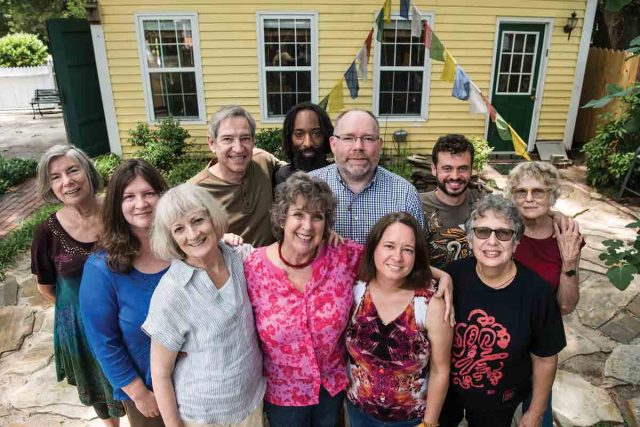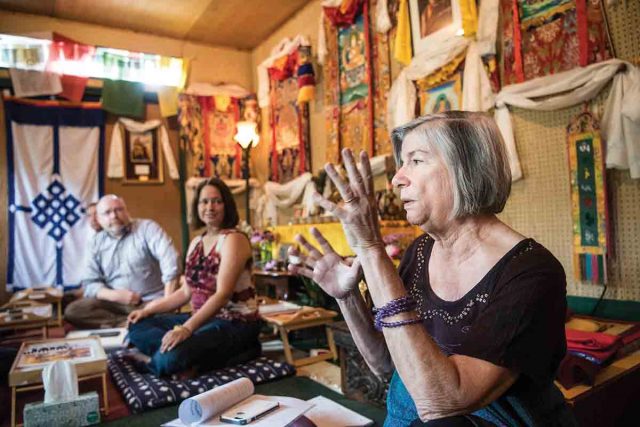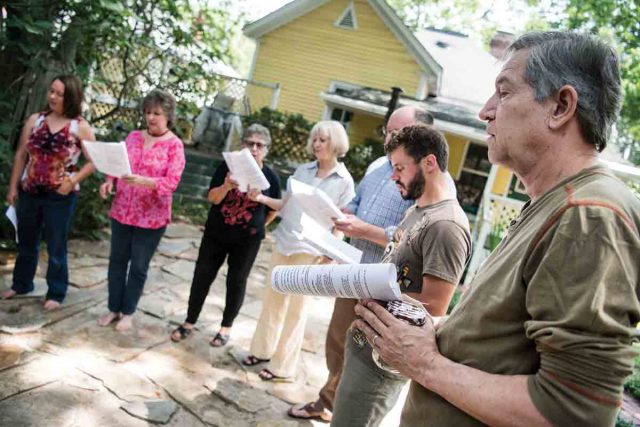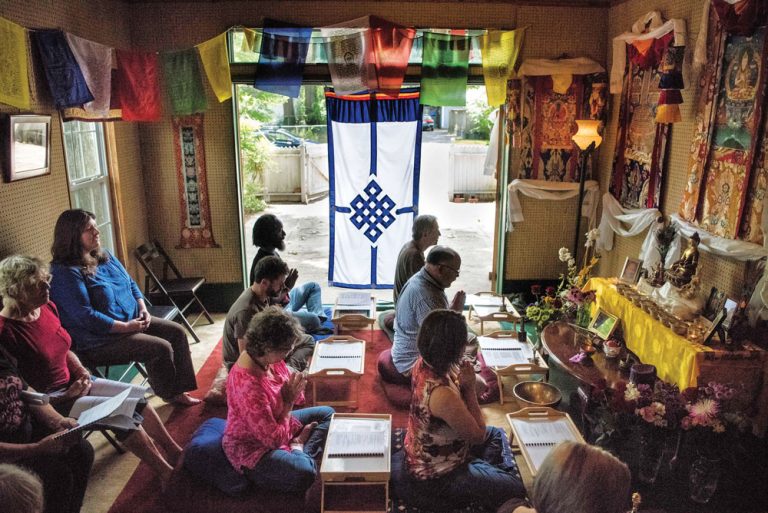City: Columbia, South Carolina
Tradition: Tibetan (Gelugpa)
Year Founded: 2000
Number of Members: 15 active
Meeting Place: Converted garage
Tricycle talks to Nancy Kreml, South Carolina Dharma Group’s secretary:
What defines your sangha?
That we mutually help each other to try to follow and understand the teachings and keep up our practice, as well as our interactions. We recently had a little dinner for our [guest] teacher, who is leaving us. One of the newer guys in the group said, “I wish I could always live with people who have the same values that I do.”
How does your group manage without a resident teacher?
We are a very small group, but about 100 miles away is the Charleston Tibetan Society, a larger group with a well-respected teacher, Geshe Topgyal. He used to come up here almost every week, but as the Charleston group has gotten bigger and he’s gotten older, that’s kind of fallen away. We’re still connected, but we’re sort of on our own. We bring in teachers from India and Sravasti Abbey in Washington state.
It’s interesting: it makes us more interdependent, and more aware of our interdependence. If we don’t hang together, [the sangha’s] not going to be there.
There must be challenges, too.
We can’t represent ourselves as teachers, so on Sundays we have meditation and prayers followed by an informal discussion. But a lot of people want to be introduced to a new form of thinking by an authoritative teacher, and we can’t offer that.

Cathy Kerwan, and Savannah Etheredge
How do you raise funds to keep the group going?
Because our space is donated, we manage with our monthly dues. And a lot of people donate their time and talents. To bring in teachers, we need things like airfare, immigration applications, insurance, housing, and food, so there’s always a little bit of a challenge for that. At one point, we thought about disbanding, just because it looked so impossible to manage financially. We’ve done some strange fundraising in the past to make ends meet—we’ve sold fireworks on New Year’s and the 4th of July.
We used to celebrate Losar, the Tibetan New Year, with a community dinner. Our teacher [Geshe Topgyal] would come and cook Tibetan food, we’d have a program with music, and he’d talk and do some prayers and sell Tibetan merchandise. We made some money, but we also brought in the outside community, and it was an opportunity to talk about the issues in Tibet. We don’t celebrate Losar anymore, though, because our teacher thought stopping the celebration was a way to protest the Chinese occupation. But we’ve talked about doing something that’s not related to a Buddhist holiday. It’s a good way to relate to the community and let them ask questions— sometimes they have odd ideas about what Buddhism is.
What does your group offer in addition to weekly meditation and retreats?
Our biggest outreach is to prisons. I do a good bit of that myself. Once a week I go to the state prison for men in Columbia, and once a month I go to one that’s about 90 miles away. And on Buddhist holidays, we’ll go eat with the guys we’ve been visiting.


Thank you for subscribing to Tricycle! As a nonprofit, we depend on readers like you to keep Buddhist teachings and practices widely available.
